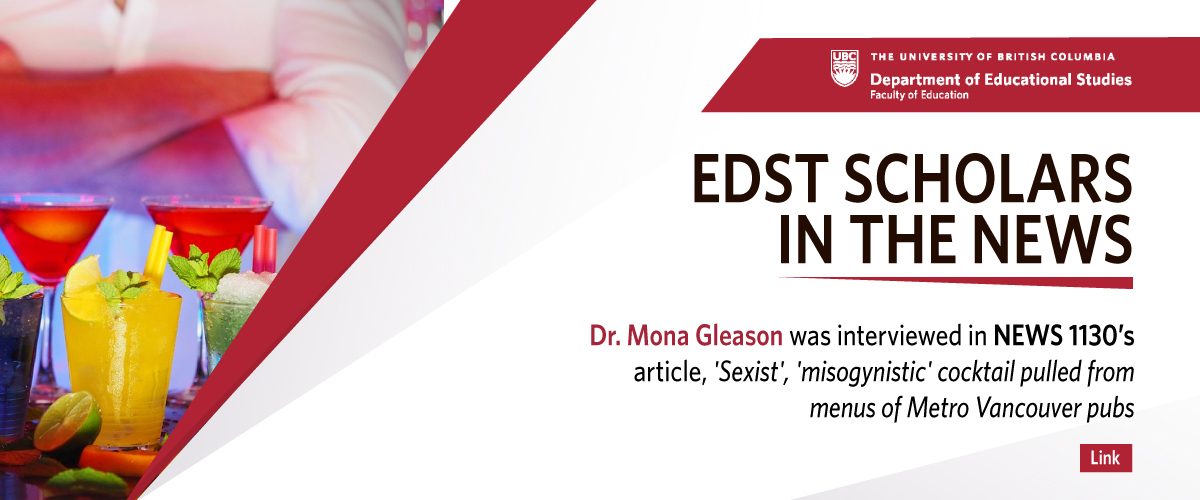Dr. Gleason interviewed by NEWS1130
The article, “Land as teacher: understanding Indigenous land-based education” can be found here: https://en.ccunesco.ca/idealab/indigenous-land-based-education

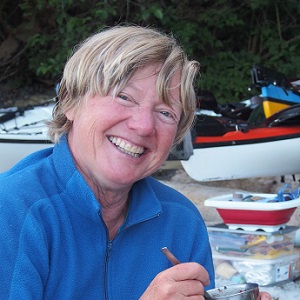
Pronouns
She/Her/Hers
Job Title
Retired educator and school administrator
Workplace
Nanaimo Ladysmith Public Schools
EDST Degree/s and graduation year/s
EdD 2019; MA 2003; Diploma 2007
Concentration
Educational Studies – General – Activity Theory and BC competencies curriculum
Residence
Nanaimo, BC, Canada
Karina Younk completed her Doctorate of Education in 2019 while working full-time as an elementary school educator and administrator. In her collaborative research with 12 educational leaders, the group co-constructed their understandings of how the competencies focus of BC’s curriculum was shifting teaching, learning, and assessment practices. In her 38-year career in education, Karina worked as a teacher and administrator in K-12 French Immersion, English, Gifted and Special Education. She was involved in many collaborative school and district projects designed to support learners and their families. One example was a leading the implementation of a Universal Designs for Learning (UDL) project with Special Education Technology (SET-BC). Karina also worked as an author (Arrimage and Thoughtsteps) and as a consultant with Art Image Publications/Éditions Beauchemin presenting to educators across Canada and the United States. While completing her M.A. at McGill, she was invited to be a sessional lecturer with students in their final semester of the education program. Later, she taught a Special Education course to diploma students at Vancouver Island University. Inspired by opportunities to engage with colleagues, families, students, and community partners, Karina enjoys working with others to expand collective learning cultures of trust, curiosity, innovation, and risk-taking. Having retired from her district in 2020, Karina now has more time for other interests like volunteering with BC Marine Trails, home renovations, travel, learning Spanish, and leading a more active lifestyle with ocean swimming, hiking, cycling, skiing, and excursion kayaking. Karina especially enjoys having more time to spend with family and friends.
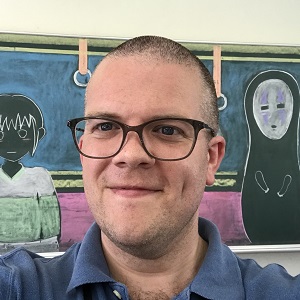
Pronouns
He/ Him/ His
Job Title
Pre-Doctoral Instructor
Workplace
University of Washington, Seattle
EDST Degree/s and graduation year/s
MEd, 2014
Concentration
Society, Culture and Politics in Education (SCPE)
Residence
Seattle, Washington, USA
After graduating from UBC I moved back to Hiroshima, Japan with my spouse, Yuco. I eventually became one of the first fully licensed non-Japanese citizens to teach public school in Hiroshima Prefecture. Since 2020 I have been splitting my time between Hiroshima and Seattle, where I am working towards a PhD in Social and Cultural Foundations of Education. I currently teach an undergraduate course in the College of Education at the University of Washington in Seattle. The theme of the course is the history of education in the United States. Also, I serve as a steward for my academic student employees union, UAW Local 4121. My two children are Oliver Kiyotake (age 7) and Sophia Chidori (age 5).
Website: www.jonathanbfisher.net
Email: jonathanbfisher@gmail.com

Job Title
Executive Director, ABCDE (Association of BC Deans of Education), retired
Workplace
–
EDST Degree/s and graduation year/s
EdD, 1979; MA 1972
Concentration
Educational Studies – General – Philosophy of Education
Residence
Vancouver, BC, Canada
Sandra Bruneau resides in Vancouver, near UBC, on the historical, traditional, ancestral and unceded territories of the Musqueam, Squamish and T’sleil-Waututh First Nations. She was born and raised in Saskatchewan, and took her first degrees at the University of Saskatchewan. Sandra Bruneau has over 45 years’ experience in Education, beginning with teaching secondary school in Calgary and ending with her retirement in Fall 2018 as Executive Director of the Association of BC Deans of Education (ABCDE). Sandra has been prominent in both the development and delivery of teacher education programs at UBC and at TRU, Kamloops, where she served as Associate Dean of Education. At UBC, she oversaw the placement and supervision of 400-450 secondary student teachers each year and was responsible for the “UBC Education” newsletter sent to UBC Education Alumni and Faculty. At TRU, she led the development of a new Bachelor of Education elementary degree program and helped facilitate the staffing, funding and accreditation procedures while also overseeing TRU’s ECE, Early Childhood Education Diploma. Following that tenure, she gained valuable experience with an Education organization in Vancouver, after which she was appointed Executive Director of the BC Deans of Education, along with several consultancy projects with UBC and SFU Faculties of Education, most notably the joint SFU-Surrey School District Counselling program and the WKTEP (West Kootenay Teacher Education Program) review. Sandra has been an active member of CSSE (Canadian Society for the Study of Education) since the 1970’s and has delivered over two dozen papers and talks at sessions of CAFE, (Canadian Association of Foundations of Education), and CPES, (Canadian Philosophy of Education Society). She has been awarded both the CAFE Distinguished Service Award and the CPES Distinguished Service Award for her dedication and service. Her case studies are included in the CAFE volume on Canadian teacher education published by U. Manitoba with Oxford University Press. Her main area of study is rational moral education, with attention to anti-racism education, critical thinking, courage, and empathy. Now that she has more time, Sandra writes scads of poems and continues her musical interests. She and her husband Bill embrace the adventurous spirits of their two children and six grandchildren.
Email: sandra.bruneau@gmail.com
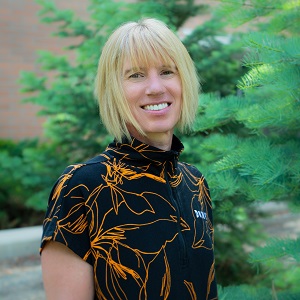
Pronouns
She/Her/Hers
Job Title
Chair, Counselling, Academic Support & Assessment (CASA)
Workplace
Thompson Rivers University
EDST Degree/s and graduation year/s
PhD, 2014
Concentration
Higher Education (HIED)
Residence
Kamloops, BC, Canada
I have over 30 years of instructional, research and administrative experiences at post-secondary institutions in British Columbia, Alberta and Ontario. I completed a BEd and MA in Mathematics Education at the University of Victoria, followed by a PhD in Educational Studies from UBC. For my dissertation, I explored the connections between emotional intelligence and first year experiences of undergraduate students. My current fields of interest are assessment and evaluation in higher education, as well as student experiences especially related to changes in emotional intelligence. I am a faculty member at Thompson Rivers University, serving as the Chairperson of the Counselling, Academic Support and Assessment (CASA) department and the Principal Coordinator of the Assessment Centre. I am also the founding president of the Canadian Higher Education Testing Association (CHETA), a network of professionals involved with testing services at post-secondary institutions across Canada.
Website: https://kamino.tru.ca/experts/home/main/bio.php?id=cjames
Email: cjames@tru.ca
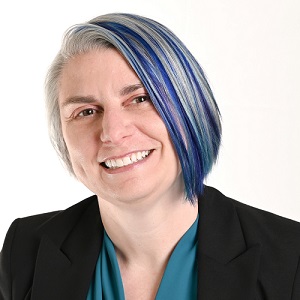
Pronouns
She/Her/Hers
Job Title
Editor and Dissertation Coach
Workplace
(Re)Visions
EDST Degree/s and graduation year/s
PhD, 2018
Concentration
Educational Studies – General
Residence
Everett, Washington, USA
Since finishing my PhD in Educational Studies, I decided to use the skills and knowledge I acquired to help other PhD students and academics to produce their best writing. As the founder of (Re)Visions, I work with junior and senior scholars on theses, dissertations, journal articles, and book manuscripts. I love helping people to improve their writing through editing and coaching. I also see my work as integral to providing the much-needed support and inspiration that we all need as we work to complete big writing projects.
Website: www.alkrevisions.com
Email: alkrevisions@gmail.com
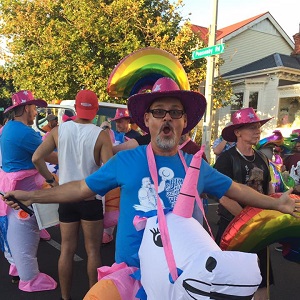
Pronouns
He/ Him/ His
Job Title
Associate Dean
Workplace
University of Auckland
EDST Degree/s and graduation year/s
PhD, 2002; MA 1999
Concentration
Adult Learning and Education (ALE)
Residence
Tāmaki Makaurau, New Zealand
I am Associate Dean (Learning and Teaching) and Director of the Learning and Teaching Unit in the University of Auckland’s Faculty of Medical and Health Sciences. My Educational Studies experiences have led me to a range of university roles in, Australia Canada, and now New Zealand. My work involves leadership, mentoring, researching and some teaching (face-to-face/blended/online), all whilst quietly disassembling the euroheteropatriarchy. My EdStudies mentors’ unwillingness to impose disciplinary compartmentalization has embedded within me a deep and relentless commitment to embrace the untidiness and ambiguity of human experience. It has been almost 20 years since I graduated, but I remain cheerfully ambivalent about “being” an academic.
Website: https://unidirectory.auckland.ac.nz/profile/j-egan
John’s Story
Tell us more about your (current or previous) position. Describe your role.
I am Associate Dean Learning and Teaching and Director of the Learning and Teaching Unit in the Faculty of Medical and Health Sciences at the University of Auckland. I lead aspects of our teaching and learning, develop strategy and policy, and enable innovation in our courses. While this is largely a service role, I also direct one postgrad elearning course, supervise postgraduate students, and conduct research.
How does a day at work look like?
Varies, but in a usual week I chair committees, conduct consultations, provide guidance on implementing policies, and lead a team of 15 direct and indirect reports.
What gives you meaning and fulfillment in your work?
Working in a university—particularly a professional faculty—means changing the world. We produce nurses, physicians, pharmacists, optometrists, epidemiologists and a broader range of health professionals. We also help current clinicians, health services staff, and others working in the sector to advance and refine their practice. So our impact is obvious.
I became an academic because I wanted to change the world. Doctors, nurses, health officials can all be agents of that change.
What are some of the challenges you have faced?
Aside from COVID19? AND COVID19? COVID19, which has massively disrupted our programmes, in particular our students’ clinical placements. A minor challenge is I’m not a clinician nor am I a biomedical scientist, so I need to be strategic about how I engage in discussions with those colleagues.
What are some accomplishments or highlights that you are most proud of?
Despite COVID19 we have nonetheless still produced two cohorts of each professional programme in 2020 and 2021. How we got there was significantly related to some of the strategic recommendations I made about how we manage processes for policy exemptions.
Tell us a bit about your path leading to your graduate degree. Why did you decide to pursue graduate studies?
I enrolled in the M Ed in Adult Education as I was working in a private post-secondary training institute and wanted to increase my wages. However, my passion has always been social justice, particularly in my queer communities. So when I encountered a lot of talk about social justice, I was…skeptically intrigued. Shortly thereafter I switched to the MA pathway.
My PhD studies were also non-traditional. I was keen to really deep dive into research, but was concerned about debt (having already accrued a lot doing my MA). But I managed to land external funding for three years, so everyone—me, the PhD admissions committee, my supervisors Shauna Butterwick and Jean Barman—was happy for me to enroll.
How has what you learned in your graduate program informed your work?
I realized shortly after graduation that the Educational Studies climate for students was remarkably good compared to other departments at UBC and in comparison to any other university at which I’ve worked. I constantly encounter students who find it unsafe to speak truth to power. Our profs both modelled this and encouraged this: so do I now.
How does your area of work relate to your dissertation?
Sort of? My mixed methods dissertation looked at the practices of HIV prevention workers whose clients include injection drug users in Vancouver. I know work in a health sciences faculty, but my research has moved away from HIV/sexual health/drug use towards scholarship of teaching and learning. But in methodological terms all my research work has grown from the training I got during my MA and PhD.
What is your most memorable experience from your time in EDST?
The community. Faculty and staff who were real, approachable, forthright, and great role models. A diverse range of student experiences.
What is something that you needed to learn (beyond your degree) or unlearn to be able to work in your sector?
Tell us a little about your career journey. Are there any transitions in your career path or any key moments that led to a change in direction?
Am a heretical academic: I started my PhD when I was 35 years old, so I was not inclined to follow the golden rule of “go where the job is, any job, and be grateful for it.” I saw one colleague do that and it ended up miserably. I even *gasp* turned down a job when the vibe I got from the unit was very, very negative and snarky. I resigned another job because I needed to be closer to home because my Mum was unwell. So my career has had ups and downs. But I’ve tried to follow the maximum that the point of a interview is to get an offer, rather than a job: there is no obligation to accept it if your instinct tells you otherwise.
But aside from having a decent (non-exploitative) salary, I’ve pursued the work—and where I’ve found interesting and rewarding work, I have been content.
How did you envision your career journey when you started your EDST program? And how did your career journey actually take off?
I have been employed every single day since graduating, though many of the jobs have been fixed term contracts. All were part of a coherent journey to me in terms of my career progression. But titles and wages themselves mean little to me, which is liberating.
Did your expectations for your career trajectories after graduation align with what really ended up happening? in what ways did they differ?
I didn’t think I’d end up living in Aotearoa. Which has not been a bad thing at all!
What is next for you, or do you know?
Work, love, eat, sleep, repeat. The order varies on the day.
How did your identity (who you are in terms of gender, race, age, being a parent or not, or citizenship, etc.) shape your career choices?
As a working class, queer person who lives with a couple of chronic health conditions/disabilities, I am “the exception that proves the rule” in a lot of the rooms I’m in. So I use that to an advantage when others seem to have a fetish for liberal meritocratic fantasies. I am in the room to change the room: not everyone with a similar positionality is comfortable in these spaces, so I feel an obligation to stay here.
Where do issues of inclusion find a place in your life or at work?
Daily, in terms of our teaching, our professions, and our staff.
What advice would you give to your past self?
Wait 30 seconds before you say it.
What advice would you give to someone who seeks to work in your sector?
What advice would you give to EDST students trying to make the most of their time in grad school?
Gravitate towards the intellectually curious rather than the credentialists.
Tell us about any international work experience you embarked on during or after your program.
During my PhD I delivered some skills building workshops at a global AIDS conference in South Africa, which was brilliant. I also saved my pennies and went to SCUTREA in London one year.
I did a SSHRC postdoc in Australia, which led to several jobs Down Under. Am now based on Tāmaki Makaurau (Auckland) Aotearoa (New Zealand).
How has remote work impacted your job/sector?
Massively. In too many ways to describe here.
What’s the purpose of applying for a job?
To get an interview (so less is sometimes more in a cover letter: make them want to talk to you to know more).
What’s the purpose of a job interview?
For any number of reasons, you should reject an offer (low wages, didn’t like the people, instinct)
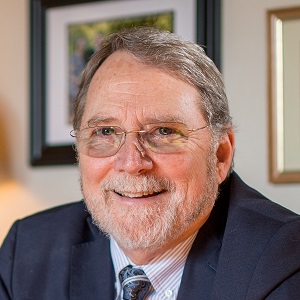
Pronouns
He/ Him/ His
Job Title
Jazz Bassist
Workplace
Hamilton Street Swing
EDST Degree/s and graduation year/s
MEd, 1988
Concentration
Adult Learning and Education (ALE)
Residence
New Westminster, BC, Canada
Biography:
Jonathan R. Baylis, MA 1978, MEd, 1988
UBC Education students and faculty may know Jonathan as the MEd Adult Education student who graduated in 1988 with a major paper in adult English language education program planning needs assessment. At that time, I was deeply immersed in my work as a language adult educator and obsessed with the notion that language education for adults, mostly refugees, had to be better attuned to the needs and interests of that clientele. I was keenly aware that teaching language had to be done with intentional topical content as language is inseparable from meaning. I taught English language to new Canadians first at Vancouver Community College, then Beijing Medical College, Canada Language Centre – the second private language school in Vancouver, Canadian International College – a Japanese/Canadian attempt at content-based language education for Japanese high school graduates and Douglas College EASL Department. I worked for Douglas College for twenty years, during which time I led the team that created the TESL Program and coordinated the EASL Department for four years. I retired from Douglas College in 2015. Today, I identify as a professional jazz bassist. My quartet, the Hamilton Street Swing, was working regularly at a wide variety of celebrations and swing dances until Covid. We are now practicing again and preparing for the reopening of live musical performance. My MA is in theology. Originally from the San Francisco Bay Area, I came to Canada in 1974 to study theology at Regent College on the UBC Campus. I make sense of the world as an avid Jesus follower. No, I never wanted to be a priest or minister. I just wanted to be a lay person who understood at the highest possible academic level, the origins, documents, and history of the faith which guided my life. Regent College was one of the few institutions that offered an academic as opposed to a professional program in theology. Philosophy before profession was and still is my priority.
Website: www.baylis.ca
Email: jonathan@baylis.ca
Jonathan’s Story
Tell us more about your (current or previous) position. Describe your role.
I left post-secondary education several years ago to work as a performing jazz musician. I also volunteer in refugee settlement.
What gives you meaning and fulfillment in your work?
Seeing students learn and succeed.
What are some of the challenges you have faced?
International education for profit. Denigration of English Language Studies as a discipline.
What are some accomplishments or highlights that you are most proud of?
I initiated, developed and implemented the Teaching English as a Second Language program that operates out of Douglas College.
Tell us a bit about your path leading to your graduate degree. Why did you decide to pursue graduate studies?
I studied linguistics as an undergraduate and taught English language for three years, all the time building an appetite for more knowledge and expertise. I completed the MEd in 1988.
How has what you learned in your graduate program informed your work?
I know a lot more about how adults learn.
How does your area of work relate to your dissertation?
I wrote about language learners’ needs assessment and curriculum design and practiced both throughout my career.
What is your most memorable experience from your time in EDST?
I loved my Education Administration course. I had to write all my papers on small cards, forcing me to become concise.
What is something that you needed to learn (beyond your degree) or unlearn to be able to work in your sector?
I developed my own approaches to grammatical and pronunciation accuracy.
Tell us a little about your career journey. Are there any transitions in your career path or any key moments that led to a change in direction?
When Douglas College excluded immigrants and refugees from their English language courses, I left. That exclusion was corrupt and outside the college’s and my professional mission.
How did you envision your career journey when you started your EDST program? And how did your career journey actually take off?
I say myself as a leader. I then served in a number of leadership positions.
Did your expectations for your career trajectories after graduation align with what really ended up happening? in what ways did they differ?
Yes. I made it to department head but not to dean.
What is next for you, or do you know?
How did your identity (who you are in terms of gender, race, age, being a parent or not, or citizenship, etc.) shape your career choices?
Raising three children motivated me to stay employed.
What does meaningful contribution mean to you?
Transformation. Making/facilitating lasting improvements in people’s lives.
Where do issues of inclusion find a place in your life or at work?
The Creator loves us all; so must we. Sometimes we have to fight inequality.
What advice would you give to your past self?
Stand up to bullies. Never doubt the value of your contribution.
What advice would you give to someone seeking to transition outside of academia?
The educator’s skills are valuable in most other sectors.
What advice would you give to EDST students trying to make the most of their time in grad school?
Your thesis/dissertation is not your final word. It is a snapshot of your thinking at the present moment. Finish it as such. Don’t try to make it your life’s work.
What advice would you give to someone seeking to expand their networks?
Talk with people, in person, at every opportunity. I got the best advice for my MEd sitting by the water on North Pender Island!
What motivated you to start your own organization (business, non-profit, foundation)?
I saw an opportunity to do lasting good.
Tell us about any international work experience you embarked on during or after your program.
I designed an English language program for Shanghai Institute of Foreign Trade. A colleague and I spend two weeks there interviewing students, faculty and administrators then writing and presenting. It was great fun and very interesting.
How has remote work impacted your job/sector?
Live music paused for two years.
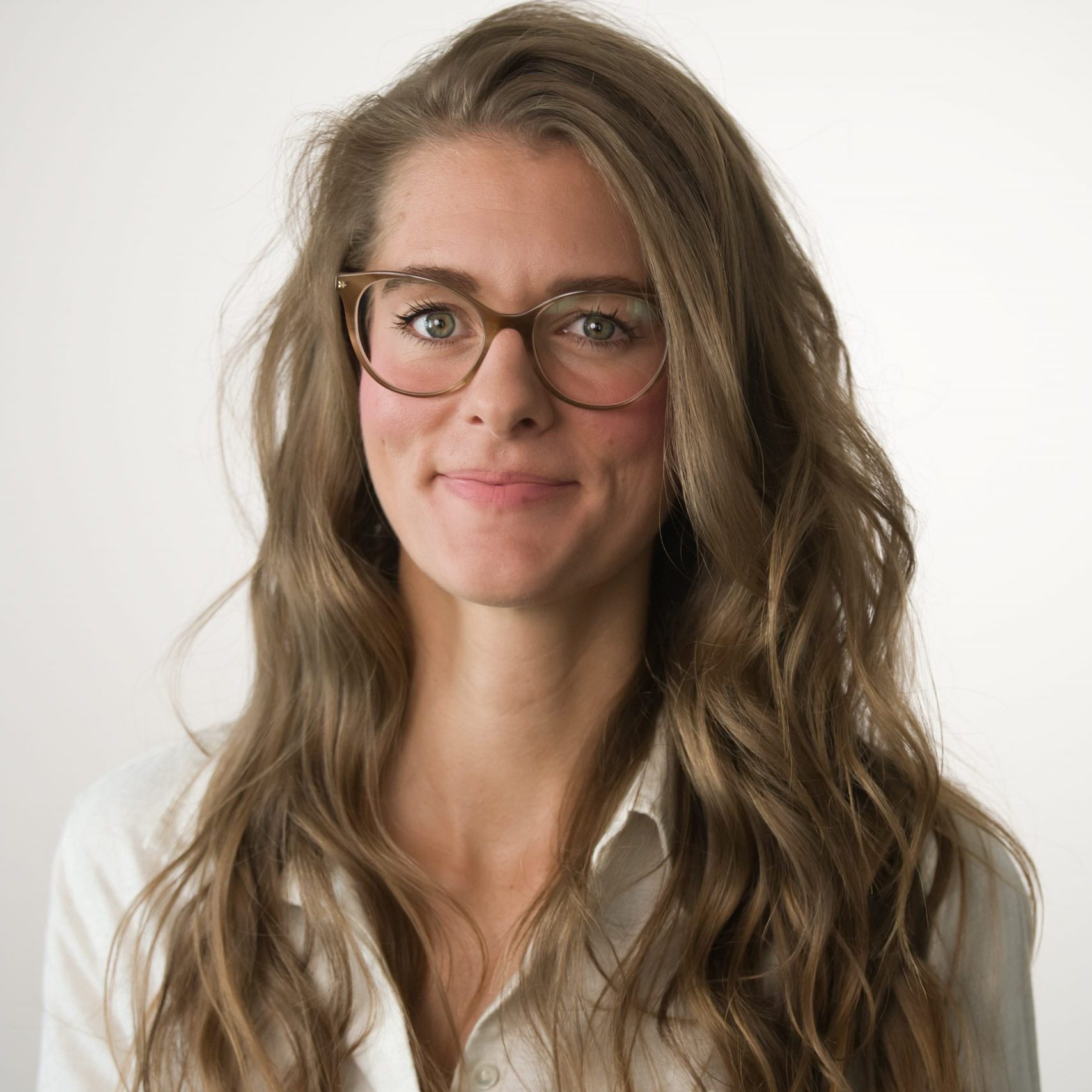
Pronouns
She/Her/Hers
Job Title
Regional Manager, BC
Workplace
Literacy Non-Profit
EDST Degree/s and graduation year/s
MA, 2019
Concentration
Educational Studies – General
Residence
Vancouver, BC, Canada
Annie is a guest on the on the traditional, ancestral and unceded territory of the Coast Salish peoples – Sḵwx̱wú7mesh (Squamish), Səl̓ílwətaʔ/Selilwitulh (Tsleil-Waututh) and xʷməθkʷəy̓əm (Musqueam) Nations – where she researches and designs environmental and sustainability-oriented educational initiatives. Working within institutions, non-profit organizations, and schools in the lower mainland of BC and internationally, Annie promotes community learning with respect to the increasingly interconnected and complex world we collectively inhabit. Annie values equitable, creative, and empowering asset-based community development and has worked with myriad age and demographic groups. Annie holds a MA in Educational Studies from the University of British Columbia; her award-winning Master’s thesis details six months of an ethnographically-oriented case study she conducted with preschoolers at world-renown Green School in Bali, Indonesia. Her research provided a critical lens into the intersection of social-sustainability and early childhood education, and the need for greater relationality and attunement to addressing systemic power structures in these fields. When not leading community engagement initiatives in Vancouver, Annie can be found promoting outdoor early childhood education, writing postcards to friends and family near and far, or seeking sunshine in the red rock deserts in the ancestral homelands of the Shoshone, Paiute, Goshute, and Ute Tribes (also known as Utah, her home state).
LinkedIn: https://www.linkedin.com/in/annie-montague-ma-348256b4/





